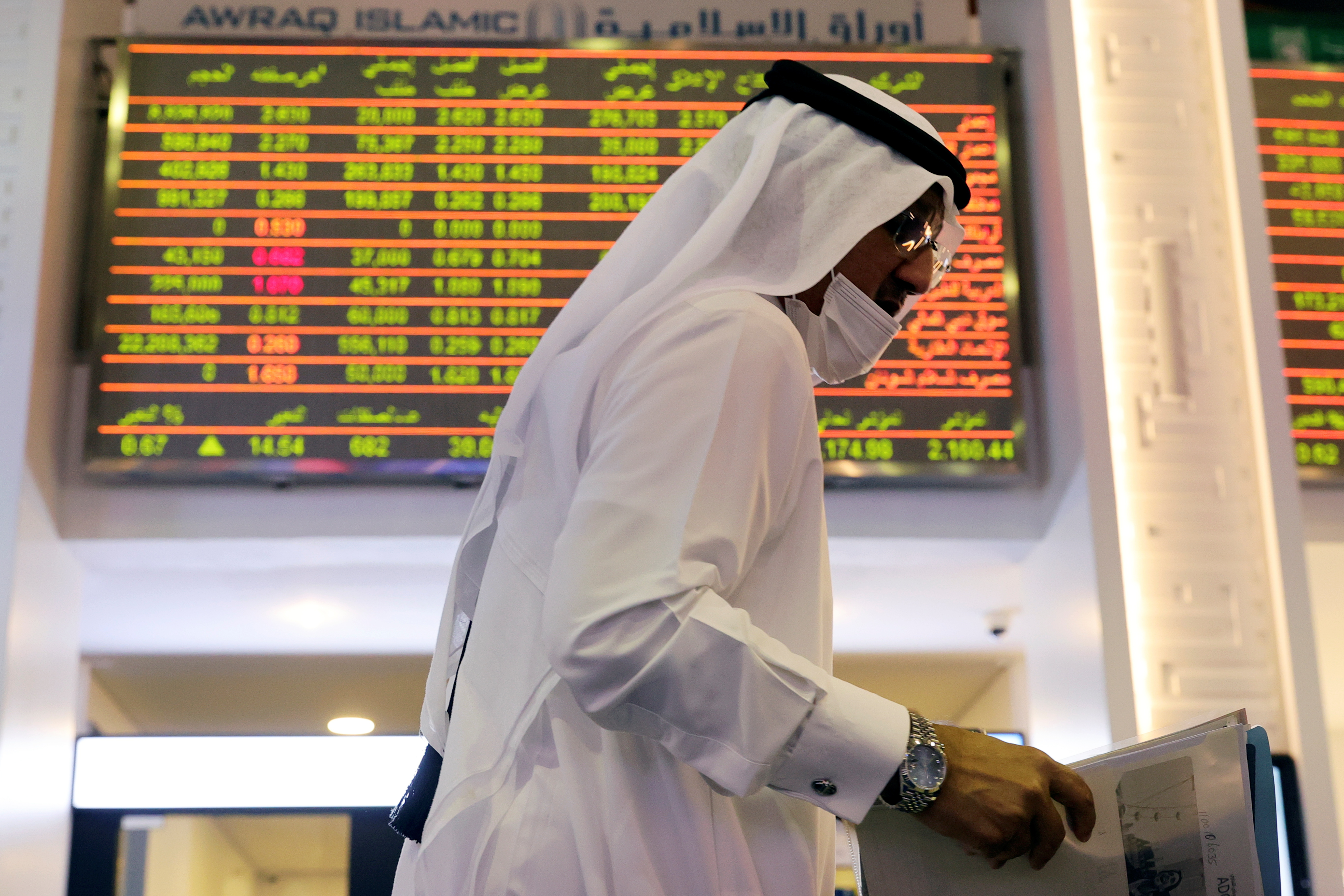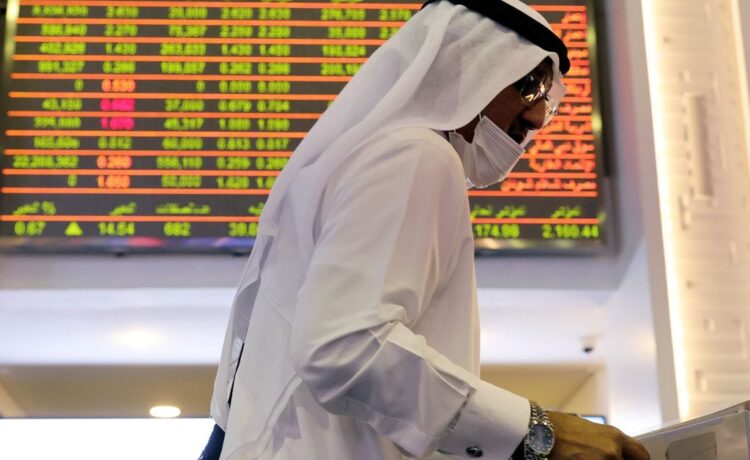
An investor walks through the Dubai Financial Market after Joe Biden won the U.S. presidency, in Dubai, United Arab Emirates November 8, 2020. REUTERS/Christopher Pike/File Photo Acquire Licensing Rights
Dec 10 (Reuters) – Saudi Arabia’s stock market ended higher on Sunday in response to rising oil prices, although the Qatari index bucked the trend to close lower.
Oil prices – a catalyst for the Gulf’s financial markets – rose more than 2% on Friday after U.S. data supported expectations of demand growth, but both benchmarks fell for a seventh straight week, their longest streak of weekly declines in half a decade, on lingering oversupply concerns.
U.S. job growth accelerated in November, with the Labor Department’s employment report showing non-farm payrolls increased by 199,000 jobs last month, above the 180,000 estimate of economists polled by Reuters, after rising by an unrevised 150,000 in October. The unemployment rate fell to 3.7% from the near two-year high of 3.9% in October.
Saudi Arabia’s benchmark index (.TASI) gained 0.6%, with AL Rajhi Bank (1120.SE) gaining 2.8% and Etihad Atheeb Telecommunication Co (7040.SE).
Meanwhile, Saudi Arabia and Russia, the world’s two biggest oil exporters, on Thursday called for all OPEC+ members to join an agreement on output cuts just days after a fractious meeting of the producers’ club.
Separately, the kingdom’s investment minister met with China’s commerce and industry chiefs in Beijing on Sunday and discussed expanding cooperation in trade, investment and technology, the Chinese ministries said.
The Qatari benchmark (.QSI) lost 0.7%, weighed down by a 1.7% fall in the Gulf’s biggest lender Qatar National Bank (QNBK.QA).
Outside the Gulf, Egypt’s blue-chip index (.EGX30) retreated 2%, with Commercial International Bank (COMI.CA) declining 2.3%.
Polls opened on Sunday in Egypt’s presidential election in which Abdel Fattah al-Sisi is set to secure six more years in power.
Reporting by Ateeq Shariff in Bengaluru, Editing by Louise Heavens
Our Standards: The Thomson Reuters Trust Principles.













